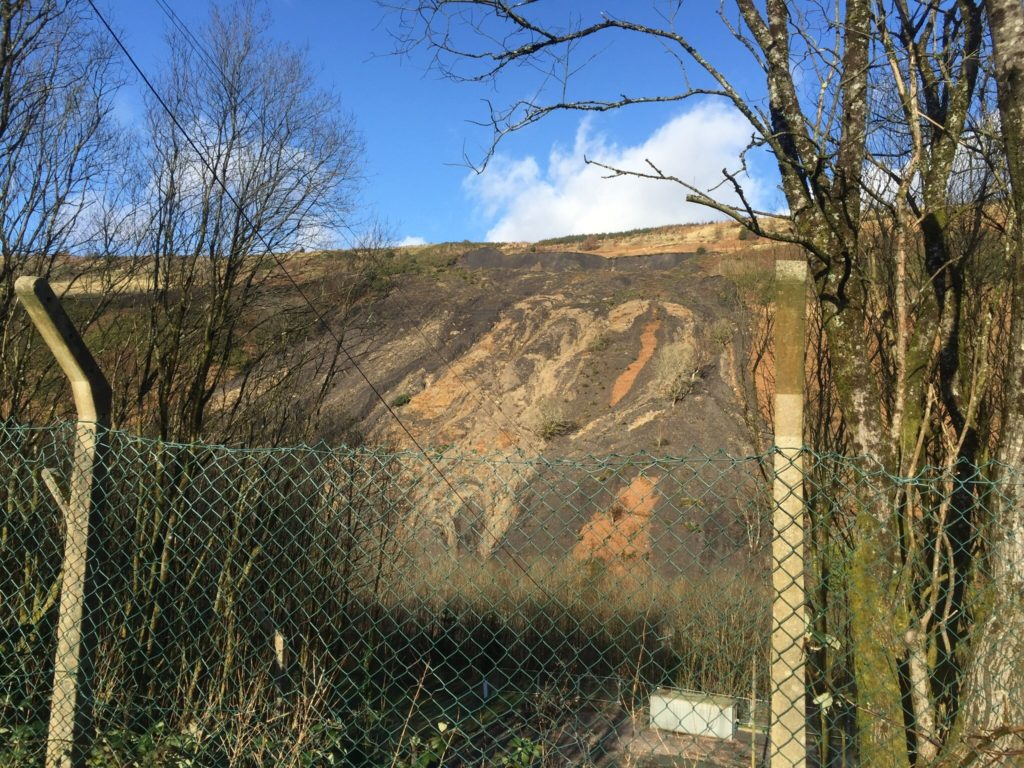Revealed: Cost of Making Coal Tips in Rhondda Cynon Taf Safer

The work done and the money spent on making coal tips in Rhondda Cynon Taf (RCT) safer over the last year have been revealed.
A report provides an update on the work that the tip safety team have done in 2023/2024 around the management, monitoring and oversight of disused coal tips and the money spent on them.
Grant funding from Welsh Government covers the costs for the work carried out during the year.
Inspections
Inspections are carried out every month or three months on category D tips, every six months on category C ones, every year on category B and every two or four years on A.
Any defects are then placed into categories which are red, amber and green with red (short term) meaning action is needed as soon as reasonably possible, amber (medium term) which includes risk mitigation such as site visits and monitoring and green (long term) meaning there is currently a low risk.
Higher priority is given to issues such as drainage defects or notable
structural issues which may worsen or have an impact on tip stability.
On average 80-90 tips inspections are done each quarter and between April and December 2023, 256 planned tip inspections have been completed which does include some quarry tips.
In addition to the planned inspections, inspections are also done after periods of heavy rainfall.
An inspection done in January, 2024, on a privately owned tip which is a kilometre north east of Abernant, resulted in notice being served on a commercial owner of a tip to rectify scour damage from a pond.
The risk was to a public right of way below the pond and the work to mitigate the immediate risk has recently been done.
Maintenance
In terms of maintenance, minor maintenance works are identified from the inspection reports and in 2023/24 and through work with the highways streetcare department.
Due to the size and nature of many of the tips and the amount of ageing drainage infrastructure on many, it is impossible and impractical to undertake all maintenance work immediately, the report said.
As a result, there is a prioritised system in place to address the work that if left alone could contribute towards increased risks.
Typical maintenance can include vegetation clearance, clearing
out and repairing drainage channels, repairing pipes and culverts, reinstating drains, scour infill and repair.
There have also been larger specific repairs done or planned to various tips which usually requires more surveys, detailed design and consents, the report added.
At Wattstown National Tip, an access track has been restored to ensure access in all weathers and also permanent overflow drainage has been replaced.
Future works needed on the tip are to restore some drainage and prevent run off water from spreading into the body of the tip.
Ecological surveys will be renewed in February, 2024, and subject to funding the work will be done in Summer, 2024.
Design and clearance work is currently ongoing as part of the preparations for remediation of the unregistered privately owned Graig Ddu Dinas tip.
The toe of the tip is showing signs of movement and causing disruption to Graig Ddu Road and a localised slip onto Vicarage Road in Penygraig
Since 2020, the council has commissioned site investigation and analysis of the tip. There is a monitoring system installed that provides data on rainfall, waterflows, ground water levels and ground movement.
Temporary overland drainage has been installed and clearance has been done in recent weeks.
RCT will apply for grant funding for the work to remediate the “active” part of this tip and subject to a successful bid, works could start in 2025.
Restoration of the scoured toe of the tip at Penrhiwceiber is also planned if the
proposed funding strategy is agreed within the current grant application.
The work would strengthen the toe of the tip along its embankment with the River Cynon.
Since the landslip from Upper Llanwonno Tip in February, 2020, during Storm Dennis, the council has put in place a four-phase plan for the site.
Phase one included emergency clearance work in the weeks that followed, phases two and three were the removal of the slipped material from the valley floor and reinstatement of the river channel and were mostly completed in June, 2021, followed by additional work in autumn, 2021, to stabilise the slope.
Permanent works to the phase two and three receptor sites, where material will be taken, will happen this year.
Phase four, the major phase of the remediation, got planning approval in October, 2022, and works started on site in April, 2023.
Up to 150,000 cubic metres of spoil material remaining on the hillside has now been relocated to the new adjacent receptor site.
More than 1,500 metres of surface water drainage pipe network has been installed to date.
As part of the phase four works the council is looking at ways to
prevent access by off-road vehicles and to create opportunities for
biodiversity in the habitats that will have been created.
Studies
The tip safety team are doing prioritised studies on tips to contribute to future decisions and to consider options to maintain, monitor or remediate.
An example has been on the privately owned tip in Ynyshir with a review of the boreholes on the tip and with permission of the owner, RCT officers are monitoring ground water levels.
Monitoring
An example of monitoring of tips in the longer term is the current system in operation on Lower Cilfynydd Tip since major works were completed there.
There are boreholes at several locations on the tip and ground water levels are monitored with data to be reviewed next in spring, 2024.
There are several systems in place on Wattstown National Tip,
including tiltmeters, flow meters and a camera at a critical culvert inlet with a consultant reviewing and providing quarterly monitoring reports on data and updates as needed.
Costs
The cost of the tip safety team is currently covered by Welsh Government coal tip safety funding and since 2020 the council has claimed and spent £3.57m in 2020/21, £2.94m in 2021/22 and £2.28m in 2022/23.
In 2023/24 the council received £11.55m of coal tip safety grant funding and a claim has been submitted for £6.09m to date with £4.87m of that cost attributed to Tylorstown landslip remediation.
The council will submit another application for funding for 2024/25 when the funding application window opens.
The tip inspection regime currently costs around £250,000 per
financial year and minor maintenance spend is currently around £750,000 per year over all the tips.
Major maintenance can be in the region of £100,000 to £1 million or more per tip, depending upon what works are needed.
The report said that the overall cost of Tylorstown landslip remediation was currently forecasted to be just under £15 million with this being reduced as the colliery spoil material is contained within the overall site and location.
Spotted something? Got a story? Email News@News.Wales












